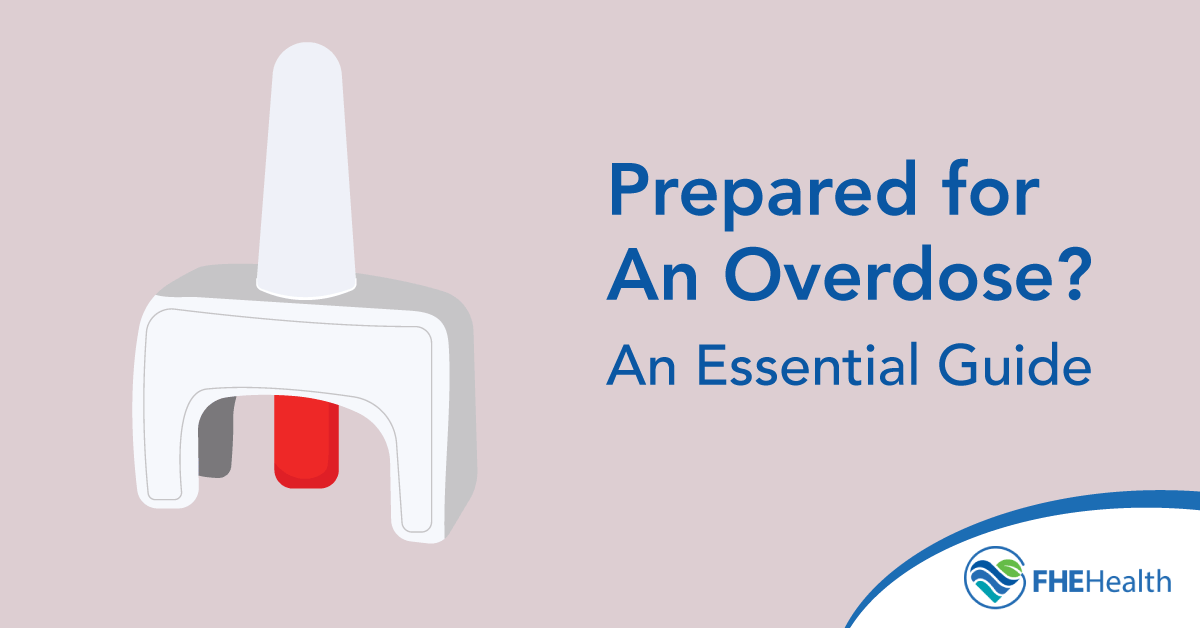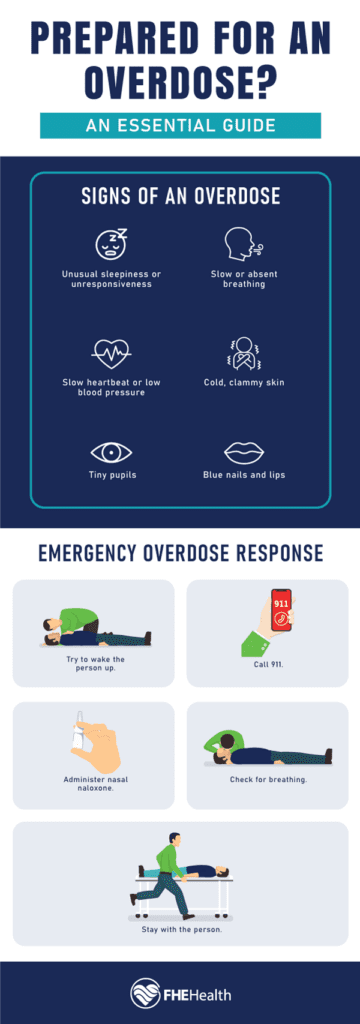
|
|
Today, drug overdoses are one of the leading causes of adult deaths in the United States. The number of overdose-related fatalities rises each decade, surpassing 100,000 in a single year in 2022. If you or a loved one is in recovery, these growing figures shed light on the serious risks that come with relapse. Fortunately, with the right plan and resources, there are ways you can help someone who’s nodding out.
Here’s an essential guide to overdose preparedness to help you recognize warning signs and take preventive measures. Being prepared and knowledgeable could help your loved one recover in the event of an overdose.
Understanding Overdose: The Signs and Symptoms
Preparing for an overdose starts with understanding its causes and characteristics. Regardless of the substance, an overdose occurs when a person’s body can’t withstand the amount of a drug they’ve taken.
What an overdose feels like depends on the drug in use. An excessive dose can interrupt the functioning of vital organs like the brain and heart, thus increasing a person’s risk of death. The amount of a drug needed to trigger an overdose varies from person to person, meaning even relatively small doses can lead to an overdose.
There are several signs that might indicate one person is at a higher risk of overdose than others. When spending time around someone who uses drugs or is in recovery, or when taking drugs yourself, identifying high-risk factors early could help you stop an overdose before it happens. These signs include:
- Changes in tolerance after a period of low use (such as after rehab)
- A tendency to mix drugs together or with other substances like alcohol
- Changes in the supply of a substance
- Trying a drug that’s much stronger than a person’s usual substance
- A history of previous overdoses
Knowing what an overdose looks like is a key part of understanding the phenomenon. Overdose symptoms can vary greatly depending on the drug in use, but getting familiar with the following list can help you recognize one when it occurs:
- Little or no breathing
- A slow, irregular or missing pulse
- Drifting in and out of consciousness
- Pale and clammy skin
- Snoring, choking or gurgling while nodding out
- Purple lips or fingernails
- Vomiting
- Constricted pupils
- Slurred speech
- Lack of response to attempts to rouse
Nodding Out: Immediate Steps to Take
A quick response is critical in the face of an overdose. If you suspect someone near you has taken too much, there are a few key steps you should follow:
- Check for a response by calling the person’s name and rubbing the center of their chest with your knuckles.
- Administer overdose reversal medication, if available.
- Call 911.
- Support the person’s breathing by removing obstructions or administering rescue breaths.
- Remain with the person while waiting for emergency medical services to arrive.
Supporting a person’s breathing can slow the overdose’s effect on their brain and other organs. If you’ve never administered rescue breaths before, here are a few guidelines that might help:
- Tilt the person’s head back and lift their chin.
- Pinch their nose shut and seal your mouth completely over theirs.
- Breathe one slow breath through your mouth every 5 seconds, enough to make their chest rise in response.
Using Naloxone
Naloxone is an opioid overdose reversal medication, or OORM, specifically designed to combat the effects of an overdose. Also known by the brand name Narcan, naloxone attaches itself to a person’s opioid receptors to block the drug’s progression. In many cases, this can restore a person’s slowed or stopped breathing to normal levels, giving them more time for help to arrive and greatly increasing their chance of survival.
Naloxone is available via prescription or over the counter, most commonly as a nasal spray and less commonly as an injection. Conveniently, the nasal spray format doesn’t require any training to administer, making it easier for those present to give it to someone during an overdose. A dose can be sprayed into one nostril while the person lies on their back with their head tilted back and neck supported. Because the drug works quickly, only a few minutes should pass before the person responds; if not, a second dose can be given through the other nostril.
It’s important to note that naloxone is only effective when a person has opioids in their system, such as heroin, fentanyl, and oxycodone. For an overdose caused by other stimulants, naloxone will be unable to hinder the drug’s effect on the body.
Overdose Prevention Tips
Part of being prepared for an overdose is taking steps to prevent it in the first place. Knowing what steps to take when an overdose hits is undeniably valuable, but avoiding it to begin with is one of the best ways to minimize harm. The following tips can help you and your loved one lower your risk of an overdose:
- Dispose of unused medication responsibly.
- Avoid mixing drugs with alcohol or other substances.
- Take medication only as instructed by a medical professional.
- Don’t take medication prescribed to anyone else.
- Avoid using substances when you’re alone.
How to Seek Support
While it’s possible to reduce the risk of suffering an overdose, it’s impossible to eliminate the risk entirely while misusing substances. Drug addictions are serious conditions that can be very difficult to remedy alone and require professional treatment to address completely.
Because addiction involves a chemical reliance on a substance, seeking help is a critical step on the path to recovery. Having a team of experts standing by to offer support can make the difference between a life controlled by addiction and one that escapes addiction’s spell. You’ll find a team like this at FHE Health, along with customized treatment plans tailored to help you or a loved one overcome their addiction for good. Like many patients before you, you’ll find our continuum of care the shortest path toward a life you can be proud of.
Go beyond overdose preparedness and attack addiction at its source. Contact us now to start your recovery today.







